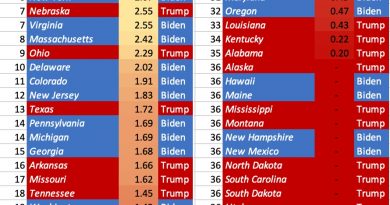Republicans Hate ESG. What That Is, And Why It Matters.
ESG is the latest boogeyman for the Republican Party. It’s synonymous with everything “woke” and is therefore the cause of all social ills. An acronym for Environmental, Social, and Governance, ESG is a somewhat casually-defined term for investment products, objectives, and, above all else, various sets of standards, that are ostensibly more ethical and more environmentally sustainable than the norm. It’s been a target for awhile, but with the recent collapse of Silicon Valley Bank, leading Republicans are claiming– without much in the way of evidence (are you noticing a trend?)- that ESG played a central role in the collapse. Greg Abbott even took to Twitter to rail against the “radical ESG agenda” that, he claimed, Biden was trying to “force” upon America’s investment funds. Listen up, people: ESG may well be stupid. It may be incomplete. But it’s important for a few reasons, first. And second, it has, well, absolutely nothing to do with the collapse of SVB or the general instability in the banking world. Let’s stick to facts.
One of SASB’s originating principles was that you can’t just assess capital, you have to assess information. and the second one is super important in an age when the first one can move so quickly and freely.
First Point: ESG May Indeed Be, Well, A Bit Silly. Sometimes.
Look, I like to keep people guessing. Am I a capitalist or a straight-up communist?! After all, my bookshelf does feature everything ranging from Peter Drucker to Adam Smith to Karl Marx to W.E.B. DuBois. Anyway, as much as I typically am quite critical of late capitalism in America, I also have an MBA, and I enjoy thinking about growth and competition and innovation at local levels. So, believe me when I say that, while I believe very strongly in things like carbon tax or other broad incentives or disincentives to help incentivize, say, decarbonization, I have a whole lot of skepticism about ESG. I’ve read some great critiques of ESG from people with whom I probably agree on very little else, even as a bleeding heart radical leftist commie pinko who does commie stuff like recycling and riding my bike to work.
First, what is ESG? Far from being a concerted conspiracy of the Globalists (euphemism for “Jews”) to Subvert Freedom, ESG is a generic corporate term like any other, and is an umbrella term. There is no “one” ESG standard. There are competing standards of ESG, not dissimilar to how there are competing standards of green building or competing standards for ethical coffee beans. The Sustainable Accounting Standards Board, for example, seeks to create uniform standards for assessing an organization based on various parameters of sustainability and energy.
Think that’s too beads-and-sandals? Well, SASB is basically “owned” by IFRS, the nonprofit agency that governs, well, all accounting, basically. You learn about GAAP and IFRS standards in school, and they do slightly different things and work slightly differently, but they’re both aimed at one thing: creating a set of universally legible standards that can help compare data either over time or across different entities.
One of SASB’s originating principles was that you can’t just assess capital, you have to assess information. and the second one is super important in an age when the first one can move so quickly and freely.
This makes sense, right? Look, ma! No Globalist Leftist Conspiracy!

ESG Point No. 2: More Information Is Better
There’s also a lot of value in thinking about how to create widely recognizable standards. If you’re thinking that sounds commie, well, I’ve got news for you: good financial analysts look at literally everything when they’re making recommendations or considering investment opportunities. The more information, the better,
Where it gets a bit silly is that money managers have all read that same article citing that same peer-reviewed study that says that consumers will pay more for a product if they think it’s sustainable. Or something. They also remember that people with more money have more money to invest, so they may well charge higher management fees for funds that are invested in supposedly sustainable stuff. One analysis found that ESG funds charged an average of several basis points more in management fees than their non-ESG counterparts. The argument the company made? They had to do more analysis to comply with the ESG reporting standards, so they could charge more money.
How has this played out for the average investor? While there is at least some evidence that companies that pay attention to ESG metrics actually perform better from a profitability standpoint– possibly because of this angle through which ESG necessarily grants companies better visibility of their own data- there seems to be a bit of tomfoolery going on in the world of so-called socially responsible investment funds. Take a look at a list of supposed SRI/ESG funds, and they’re really just investing in your average, run-of-the-mill trillion-dollar company. The blue chip du jour, or perhaps their talking point is that companies like Apple and Amazon are supposedly progressive. They’re not. Do they do carbon disclosures? Sure, some do! Are they making concerted efforts to lower their carbon footprint? I guess, maybe sometimes! Are they improving the bottom line for people and planet in addition to profit? Maybe not so much.
ESG Point No. 3: Socially Responsible Investing Has Been Around For Centuries
While ESG is a term that’s barely old enough to drink in the United States, the idea of socially responsible investing (SRI), which is the general umbrella realm that ESG exists under, has been around for a hot minute. SRI was super trendy in the 2000s and 2010s. The term itself dates back to the 1960s and 1970s, and the first ostensibly SRI fund was established in 1971, not coincidentally at the peak of Vietnam War-era counterculture.
SRI, for its part, can in turn trace its roots back to the 18th centuries in England, when pioneering social reformers like William Wilberforce (1759-1833) and Henry Thornton (1760-1815) began to advocate for investment in more ethical stuff. Wilberforce was a prominent abolitionist and philanthropist. Thornton, a banker and dear chum of Wilberforce, famously cut his own political career in Parliament short because he refused to bribe voters with cash, as was customary at the time (I don’t know why, but this scene keeps coming into my head when I think of someone demanding a bribe from an oblivious party).
William Wilberforce, The Original Woke Investor?
The Clapham Sect, which comprised Wilberforce, Thornton, and others– originating out of a specific Anglican church in the eponymous London borough- played an important role in shaping a primitive but hitherto-unknown vision of “ethical” finance. The Clapham Sect basically argued that people should put their money where their mouths were, and so, if they were Christians, should focus on Christian ethics in their day-to-day business– values of charity, etc. Interesting, too, that the abolition of slavery was a key point of interest for Wilberforce. Interesting that a group of Christians would be pushing for social reform, pushing against what they saw as the social ills of the time, but focusing on challenging oppression (i.e. abolishing slavery). We will return to this in a moment.

These movements in favor of ethical investment have often paralleled or dovetailed with other social movements. Wilberforce and friends were interested in abolishing slavery. The Women’s Suffrage movement in the United States relied heavily on advocacy around supporting businesses that supported women’s suffrage. Pauline Newman is a good example of someone who combined overlapping angles of advocacy, having been discriminated against as a Jew, as a woman, and as a worker, and consequently becoming one of the most important figures in American labor history, while Elizabeth Cady Stanton, a prominent suffragist, was married to a prominent abolitionist, Henry Brewster Stanton, who wrote for William Lloyd Garrison’s famous Liberator newspaper (published 1831-1865). In the 20th century, social advocacy focused on advancing civil rights– or, from an investing standpoint, challenging companies that refused to. Universities made a big push for divestment from South Africa in the 1980s to protest Apartheid.
… [M]any conservatives genuinely seem to believe that more information– around carbon disclosure, wage transparency, or what have you- is a bad thing. It’s not clear to me why “less information” would be better for a capitalist trying to optimize their resources and make profit. But here we are.
I mention all of these things because ESG and its predecessors were basically all involved with advocating for most of the most important corrections to policy and law that this country has ever had. Back in the day, conservatives– with “conservatism” looking a bit different than it does today- fought against efforts to abolish slavery, to give women the right to vote, to give citizens the ability to cast a popular vote for the Senate, or to end segregation. In the Civil Rights era, the Montgomery Bus Boycott was its own “woke” effort to challenge segregation in public transportation and ended up basically breaking the public transit agency by depriving it of as many as 40,000 fare payments each day of the boycott.
Today, conservatives now seem to believe that, using ESG, the federal government is going to take away everyone’s hamburgers and cars and force everyone to live in ghettoes with electric cars (which happen to all be luxury vehicles? Question mark?), and restrict everyone’s movement, because that’d so be great for capitalism. It’s a conspiracy theory along with the black helicopters, the FEMA camps, and the Jewish Space Laser (to which, by the way, I am still waiting on the launch codes! I was denied multiple times– something about my mother not being Jewish?).
Patently, deeply, and forever absurd? Yes, of course. But these people have a lot of power and they have a broad platform that reaches tens of millions of Americans. Insane crazy conspiracy theories aside, though, it seems that many conservatives genuinely believe that more information– around carbon disclosure, wage transparency, or what have you- is a bad thing. It’s not clear to me why “less information” would be better for a capitalist trying to optimize their resources and make profit. But here we are.
Wait. Are you saying that ESG is anti-racist? Or that anti-ESG is racist?!
I– what? Oh, God, no. Look– this is the thing about Wall Street, people. Wall Street will never be “woke” in the way that Deray McKesson meant it when he told you to stay woke, y’all. Wall Street is the sum of the most diabolical machinations of the world’s richest investors. It does what those investors want. If managers realize that they can’t attract or retain competent talent without providing same-sex partner benefits, which my father-in-law says are, along with The Transgenders, “destroying America,” then they’re going to end up offering same-sex partner benefits because they have to in order to attract or retain talent. If money managers start thinking that, say, this Hitler guy is actually pretty bad, then they’re going to invest their company’s resources accordingly. That may shift the balance of power– something we saw with companies putting on hold expansion or relocation plans in response to LGBT discrimination legislation (cost North Carolina billions of dollars).
Did PayPal cave to the woke agenda when it put its expansion plans on hold in response to political climate in North Carolina? I don’t know– but if you see who ended up losing out, it was North Carolina. Translation: It has nothing to do with being “woke.” It has everything to do with making decisions that the companies believe are best for them.
This translates to how ESG plays out in managed funds, and again, that’s really where ESG goes from “potentially valuable tool for making decisions” to “idk, kinda seems like a low-grade scam.” Not because it’s an evil conspiracy of the Globalist Radical Leftist Marxist Baby Eater Elite. But because most of these ESG funds are, at the end of the day, just invested in stuff like Apple or Microsoft or whatever, and those are just big corporations that have surprisingly little to do with the “people” or “planet” part of the triple bottom line.
You’ve Heard Of Socially Responsible Investing. Now Get Ready For… Socially Irresponsible Investing?!
True, companies often do make bad decisions, but as I mentioned in this article, the conservative quest to facilitate investment in socially-regressive corporations has really just demonstrated that the most profitable corporations have ended up actually adopting some nominally progressive policies because it’s good business. When I was but a wee one playing with blocks, only a tiny handful of the Fortune 500 offered same-sex partner benefits (I want to say it was like three). Ten years ago, it was around two thirds. Today, 100% of the Fortune 500 offer same-sex partner benefits. Simply put, if you aren’t doing something like this– that the majority of the workforce, including probably the entire gay or queer workforce comprising millions of workers- you’re really going to struggle with talent retention and attraction.
Woke agenda? Hey, maybe! But these trillions of dollars are looking good, aren’t they?
ESG Point No. 4: Anti-Woke Investing Was Really Into Promoting Slavery, Actually
Between English reformers like Wilberforce and Thornton and American abolitionists and freedom fighters, both entities had to contend with the “anti-woke” mindsets of their time. The Three Fifths Compromise, which gave slave states a disproportionate power by counting slaves as three fifths of a human (even though slaves themselves were, paradoxically, denied the right to vote) might well have been the first “anti-woke” measure in American history. This played out through vitriolic debate in the 19th century as abolitionists clashed, both rhetorically and violently, with pro-slavery Southerners.
Historian Sarah L. Quinn, exploring the geopolitics of the debate in 19th century America over financial capital and land development for an expanding nation, noted that:
fights over slavery […] came to subsume debates about land sales and internal improvements. As it became clear that Western settlers rejected the extension of slavery, the southern states increasingly resisted any plan that could promote the West and so upset the nation’s balance of power.”
Sarah L. Quinn, American Bonds: How Credit Markets Shaped The Nation (2019).
In other words, the South wanted slavery, the Western states didn’t want slavery, and so the South dug in their heels and opposed any efforts to send federal funding westward. Quinn suggests that this is perhaps an origin story for the “state pride, screw you big bad federal gubmint” mentality, given how badly this recalcitrant position ended up stunting federal investment during the era. Infrastructure projects instead relied on state and local governments almost exclusively, whereas the federal government had previously allocated substantial resources to infrastructure expansion. Monumental projects like the Erie Canal or the Chesapeake and Ohio— which really enabled the very realization of American capitalism per se- wouldn’t have happened with out this kind of support.
Conclusions: ESG May Involve Politics, But It May Also Just Be “Capitalism With More Information”
When I’m deciding whether to do business with a client or a vendor, the “all other things being equal” determinations are usually about intangible things. Does one company give better service than another? Is one better at communication? Does one seem more competent, either in terms of managerial competency or cultural competency? I have a few pet peeves, for example– I don’t mess with companies that don’t put information on their websites, for example. If you have a “who we are” page and it just says we’re visionaries, music makers, and dreamers of the dream (Arthur O’Shaughnessy and/or Willy Wonka), I’m less likely to want to do business with you than if that page says, “Joe Blow, Whose Credentials Are Here, And Whose LinkedIn Is Here.” But if we don’t have that information?
Wearing my capitalist hat, allow me to say that, while there is plenty of useless information out there, the more uniform, structured information and data we have that can be compared across multiple companies, the better. If I am comparing six companies as potential targets to invest money and they’re all fairly similar on the balance sheet, what other information can I rely on? I don’t want to rely on just a hunch– I should be relying on real data. This can be included in ESG metrics. That’s all I’m asking for– more information and better information, and an ability to compare potential investments that might otherwise look very similar.
Are some of these funds relying on buzzwords to make more money off well-meaning but uninquisitive liberal investors? Absolutely. But is there some sort of conspiracy behind ESG? Hardly. That would imply that the people assembling these metrics and standards aren’t as much ruthless capitalists as the folks operating without ESG. Make no mistake– they’re all ruthless capitalists. They just want you to have more information and better information. In the past, ESG’s predecessors moved the needle on everything ranging from slavery to women’s suffrage to segregation to apartheid. And if there’s some social change that comes out of it in this current iteration, like, I don’t know, maybe making sure LGBT youth aren’t demonized and vilified? I’m all about it.




